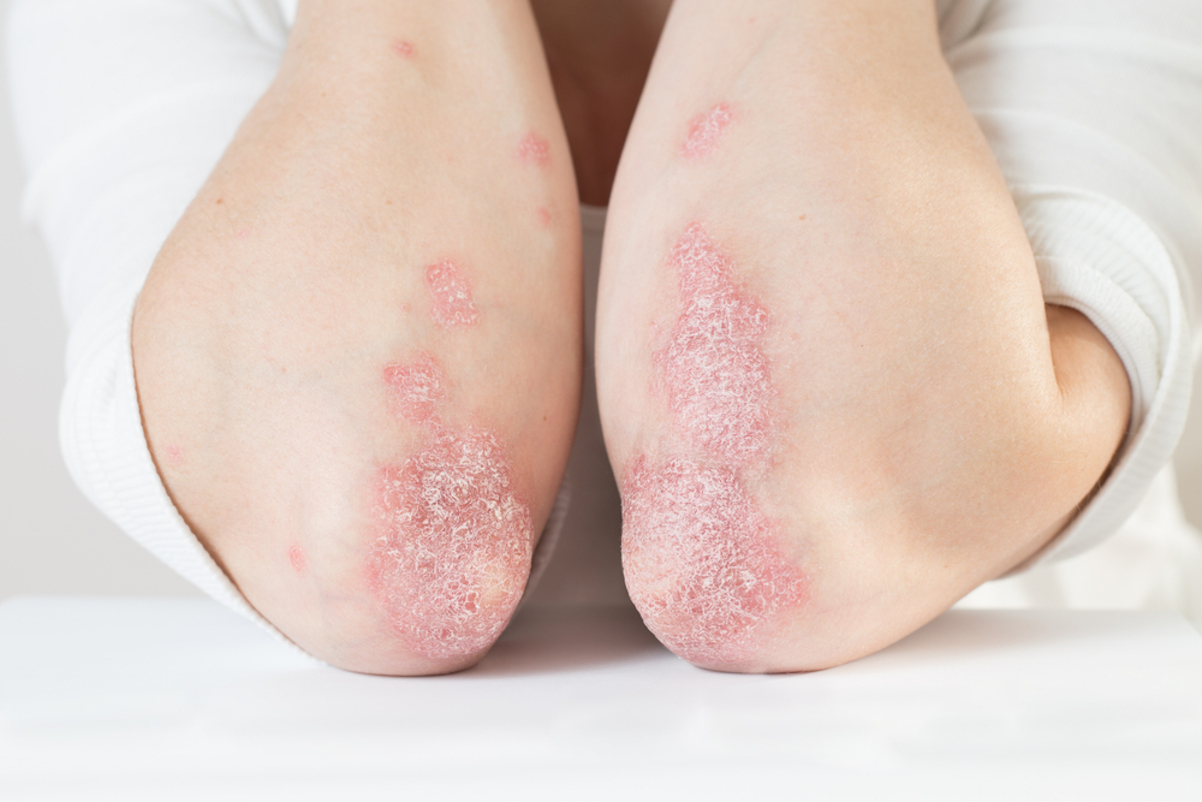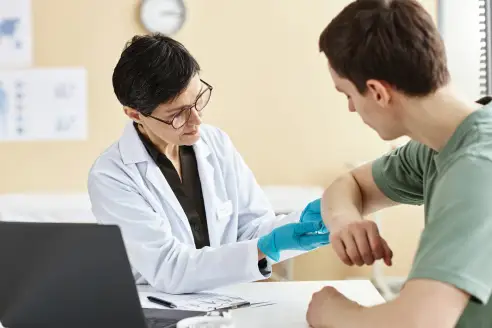Psoriasis
Psoriasis is a chronic skin condition causing red, scaly patches, often itchy and inflamed, affecting millions worldwide
Symptoms of Psoriasis
Psoriasis typically presents as red, scaly patches on the skin, often causing itching, discomfort, and sometimes pain.
List of Symptoms:


Dr. Abdur Rab Niaz
Homeopathic Doctor
Causes and Risk Factors of Psoriasis
Psoriasis is caused by an overactive immune system that accelerates skin cell production. Genetics play a major role, and environmental triggers like stress, infections, and skin injuries can worsen the condition. Smoking, alcohol, and certain medications also increase the risk and severity of psoriasis.

Diagnosis of Psoriasis
Psoriasis is typically diagnosed through a physical examination of the skin, nails, and scalp by a dermatologist. If needed, a skin biopsy may be performed to confirm the diagnosis and rule out other conditions. Early diagnosis is crucial for effective treatment and management.
TYPES OF PSORIASIS

FAQs about Psoriasis
Frequently Asked Questions
Psoriasis often raises questions. Below are FAQs to help you understand its causes, symptoms, treatment options, and management for better living with this condition.

